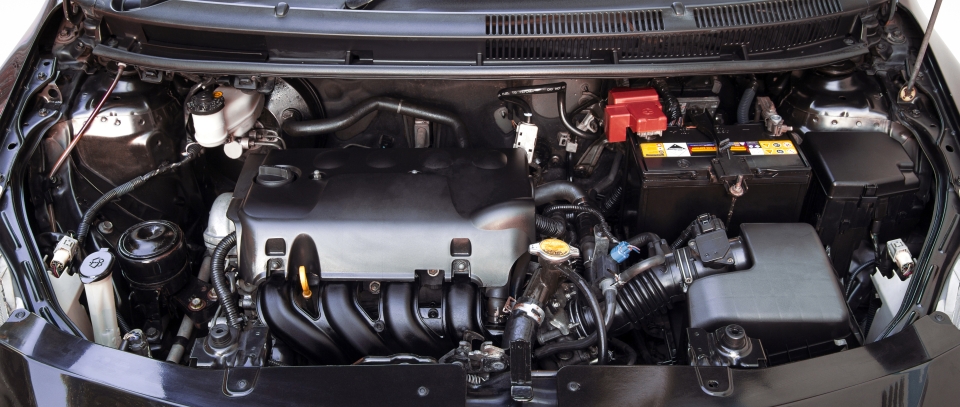Setbacks in short-term to lessen amid industry trends turn to innovative, emerging tech
2022/07/12 | By CENS
Global events in recent years have accelerated certain trends but also dealt significant setbacks to the overall advancement of the automotive industry. In an email interview with Industrial Technology Research Institute’s Industry, Science and Technology International Strategy Center (ISTI) Intelligent Vehicle System Research Dept. Machinery & System Research Division Senior Researcher James Hsiao, we discuss the future landscape and various factors that would create ample opportunities for Taiwan’s auto parts and EV industries. The following answers have been edited for clarity.
What are the challenges that the auto parts industry must brace for in the next year, and how should Taiwanese suppliers and global buyers prepare?
The new vehicle market (OEM auto parts) will continue to be impacted by the COVID-19 pandemic and chip shortages, resulting in reduced production of units. The shortages are expected to be exacerbated by China’s zero-COVID policy disrupting the auto parts supply chain. With a fixed supply of second-hand cars, demand for vehicles has spurred consumers to look towards aftermarket alternatives, which happened to be Taiwanese suppliers’ focus in terms of production, as well as export volume.
The auto parts industry value is forecasted to grow in 2022, specifically with increased demand for rubber/plastic injection collision parts, such as auto lights, bumpers, and rear-view mirrors. Electrified auto parts and vehicle electronics like key components for ADAS, like Lidar, mmWave radar, various image sensors, and EV power components, all require automotive factories’ feature inspections on completely-assembled vehicles and coupled with increasing demand for 3C and 5G consumer electronics, the demand for semiconductors remain high, making it difficult for suppliers to meet demand on both sides. Shortages of power components and auto chips are expected to ease between mid-2023 and early 2024, as the supply for new vehicle assembly and sales stabilizes.

How do the events of the past years — the pandemic, the supply chain disruptions, zero-carbon policies, the maturing products and technologies for EV and self-driving cars, and the Russian invasion of Ukraine — impact the auto parts industry? How should Taiwanese suppliers react?
Estimates show that due to the auto chip shortage, and the lockdowns in auto parts production areas in 2022, the global production output of cars dropped by around 80 million units compared to 2021, while the Ukraine-Russian conflict primarily impacted auto brands backed by Russian investment, such as VW, Renault, and Hyundai’s local investments.
While Russia and Ukraine do produce and export certain key materials for EV batteries and EV motors, the volume and scale are still significantly smaller than the output from the world’s main exporting country, South Africa, therefore, the potential impacts of the conflict on EV production are limited.
On the other hand, Taiwan’s auto parts are predominately export-oriented — focusing on Central and North America, Japan, West Europe, and China’s AM markets — and suppliers are more OEM capable than experienced in managing self-owned auto brands. This is largely due to the closed nature of the traditional auto parts supply chain.
While Taiwan has a comprehensive ICT industry hub, many auto electronics, and self-driving vehicle parts must undergo certification, and due to the lack of standardization across the industry, many parts cannot be used across different brands. Together with scaling up difficulties and lack of investment in certifications, Taiwanese suppliers are still focusing on the AM market, but specific suppliers have also entered global auto brand supply chains.
The EV market is an emerging industry, ripe for Taiwan’s automotive electronics and ICT suppliers to invest in. Coupled with how the world’s semiconductor production hub is based in Taiwan, Taiwanese suppliers have a greater advantage in entering the EV industry over the traditional auto parts sector. Notable areas in the EV vehicle and EV parts industry where Taiwanese suppliers have a distinct advantage include e-scooters and government policy-sponsored electric buses.
The integration of the auto parts industry and smart manufacturing is an unavoidable trend; please share the recent status and future state of the industry, and how Taiwanese suppliers can bridge the demand in smart manufacturing?
Taiwanese auto parts suppliers have built up years of high-mix, low-volume manufacturing capabilities, and made a significant stake in global markets through managing various distribution channels. On the other hand, suppliers partook in the government-led New Southbound Policy initiative, seeing the auto parts demand in the region maintaining consistent growth and anticipating global procurement trends. To meet global demands, Taiwanese auto parts suppliers have proactively invested in new technologies, obtained roles in global auto supply chains, and procured automated manufacturing equipment to improve production efficiency, increase capacity utilization, optimize product competitiveness, and added product value.
The local and global situations have led to renewed demand for auto parts, with expectations that the world industry value would reach NTD$227.62 billion this year, marking a 2.9% YoY growth.
The need for smart manufacturing is significantly affected by external trends, such as the sharing economy — which would increase vehicle usage rates, and in turn, the replacement rate for auto parts and vehicles — and the adoption of EVs, leading to a low-volume, high-mix development, which would create shorter product life spans for vehicles. On the other hand, future trends will increasingly demand more efficiency as the manufacturing sector is experiencing labor loss and more training costs. Emerging smart technologies, such as IIoT, big data analysis, cloud applications, and AI will have a significant role in improving the auto parts industry’s competitiveness.





